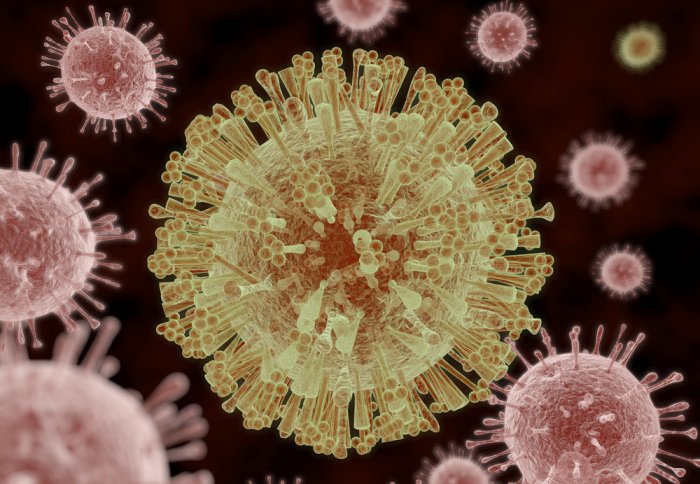Human antibodies from Dengue patients effectively treat Zika infection in mice
by Ryan O'Hare

Scientists have discovered that antibodies taken from patients infected with Dengue virus are effective in treating Zika infection in rodents.
The team, led by researchers at Imperial College London and Washington University in St Louis, found that giving Zika-infected mice the antibodies was enough to treat the early stages of infection, and even protected unborn pups in pregnant animals.
According to the researchers, if the findings can be replicated in humans, the discovery could potentially lead to a single therapy to protect against both viral threats.
The next step is to see whether they are effective in larger animal models, and potentially even humans
– Professor Gavin Screaton
Dean of the Faculty of Medicine
The findings build on previous work by the group, which looked at blood samples from patients in South East Asia infected with Dengue virus, discovering they produced antibodies which were highly effective against the virus. These Y-shaped proteins, which recognise the virus and stick to its surface, single out Dengue for destruction by the body’s immune cells.
Last year, the group discovered that this same class of antibodies also recognised a close cousin of Dengue, the Zika virus.
Now, in a study published in the journal Nature Immunology, they have shown for the first time that these antibodies are effective in treating Zika infection in mice.
Dengue is found in multiple regions around the world, including the Pacific, South America, Africa and South East Asia. The virus, of which there are four types, is spread by mosquitoes and can lead to Dengue haemorrhagic fever, a complication which can lead to shock and eventually death if untreated.
Antibody response
Zika is from the same family of viruses (called Flaviviridae) as Dengue, occurs in many of the same regions and is transmitted by the same species of mosquito. Recent Zika outbreaks in South and Central America have been associated with deformities in newborns as well as Guillain-Barré syndrome, a rare but debilitating condition affecting the nerves.
Professor Gavin Screaton, Dean of the Faculty of Medicine at Imperial and senior author, said: “This paper shows for the first time that antibodies we had previously found to be effective against Dengue potently protect against Zika virus in mice and can treat the early stages of infection.”
In trials, animals infected with Zika were treated with the antibodies in the first five days of infection and monitored for 21 days. The researchers found that treatment with antibodies reduced deaths and weight loss in the rodents when compared to a control group.
They found that overall, the treatment was able to reduce the damage caused by the virus, Furthermore, tests in pregnant mice infected with Zika reduced the deaths of unborn pups to just one in 10, compared to a 90 per cent loss seen in infected control animals.
Further tests revealed that the antibody treatment was associated with a drastic reduction in the amount of virus detected in the brain and testes, sites known to be targeted by Zika.
Earlier studies† have shown that being previously infected with Dengue has the potential to cause a more severe reaction to Zika, with the virus using the body’s own immune cells as a Trojan horse. In a phenomenon called antibody-dependent enhancement (ADE), antibodies stick to the Zika virus and tag it for destruction, but the immune cells which destroy the virus are unable to finish the job, and become overrun with the virus.
Potential for dual vaccine
However, the latest study – which focused on a subgroup of these immune proteins, called anti-EDE1 antibodies – found that modifying the antibodies slightly could overcome the problem, without losing their effectiveness.
The researchers explain that while their latest findings highlight a tantalising potential for a dual-Zika-Dengue vaccine, the findings need to be replicated in primates, which will be able to give a clearer idea of potential effects in humans and whether it could move towards clinical trials in humans.
The group is now exploring how to develop a vaccine based on the target of the antibodies, pairs of interlocking proteins on the surface of the Dengue virus. The hope is that by introducing these protein pairs into the blood stream, the body’s immune cells will recognise them as a virus and start to make antibodies to counter them, leaving the host better prepared against future attack from Dengue and Zika.
Professor Screaton added: “This group of antibodies is unique in being able to target Dengue and Zika. The next step is to see whether they are effective in larger animal models, and potentially even humans.”
The outbreak of Zika in 2015-16 made headlines around the world following a sharp increase in associated birth deformities, which were seen in countries including Brazil, Colombia and Mexico with some cases reported in the US. The wave of infection, and the associated cases of microcephaly seen in infants, seems to have passed, with a sharp drop off in cases being reported.
“The threat from Zika is clearly not as great as it was, but nobody knows when it's going to come back,” said Professor Screaton. “It might be a number of years between now and the emergence of another big epidemic.”
The research was supported by the Wellcome Trust, with ongoing collaboration with the Pasteur Institute in Paris.
-
-
‘Anti-Dengue E-dimer epitope human antibodies have therapeutic activity against Zika virus infection’ by Fernandez, E. et al. is published in the journal Nature Immunology.
Article supporters
Article text (excluding photos or graphics) © Imperial College London.
Photos and graphics subject to third party copyright used with permission or © Imperial College London.
Reporter
Ryan O'Hare
Communications Division